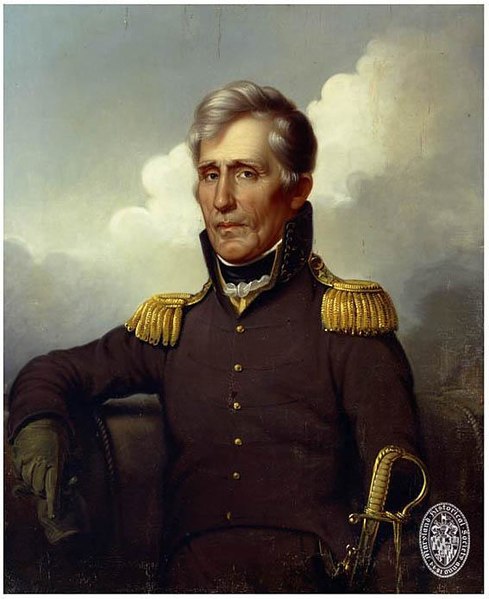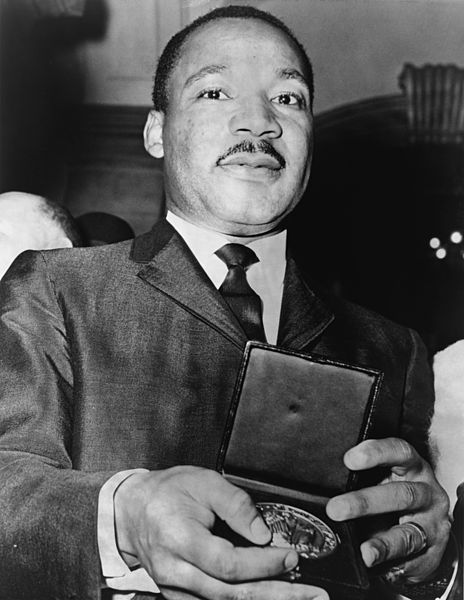This article delves into a diverse array of pivotal moments in history, capturing events from January 30th across various centuries. These events reflect significant cultural, political, and technological shifts that have shaped the world.
From the somber execution of King Charles I of England in 1649, marking a dramatic change in British monarchy and governance, to the declaration of a global health emergency by the World Health Organization in 2020 due to the COVID-19 pandemic, each moment provides insight into the complexities of human progress and the enduring impact of these milestones.
Through the exploration of these events, the article offers a lens into the multifaceted nature of history, highlighting advancements, tragedies, and transformative occurrences that have left indelible marks on humanity’s journey.
January 30th Events in History
1649: King Charles I of England is beheaded
This event marked a significant point in English history, culminating in the trial and execution of King Charles I.
Accused of high treason and other high crimes, his death symbolized the end of divine right monarchy in England and led to the period of the Commonwealth under Oliver Cromwell.
Also Read: January 29 – On this Day in History
The execution took place outside the Banqueting House of the Palace of Whitehall in London. This was a decisive moment in the English Civil War, leading to the temporary overthrow of the monarchy.

1661: Oliver Cromwell, Lord Protector of the Commonwealth of England, is ritually executed more than two years after his death, on the 12th anniversary of the execution of the monarch he himself deposed
Oliver Cromwell had been a leading figure in the English Civil War, opposing King Charles I and later ruling the Commonwealth of England as Lord Protector. After his death in 1658, the monarchy was restored in 1660, and Charles II came to power.
Also Read: January 31st Events in History
In a posthumous symbolic act of retribution for the execution of Charles I, Cromwell’s body was exhumed and subjected to a posthumous execution. His body was hanged in chains at Tyburn, and then his head was placed on a spike above Westminster Hall.
1835: In the first assassination attempt against a President of the United States, President Andrew Jackson is attacked by Richard Lawrence, who fires a pistol at him which misfires
This incident is notable as the first known assassination attempt against a sitting U.S. president. Richard Lawrence, an unemployed house painter, believed he was the rightful king of England and blamed Jackson for his financial losses.
He attempted to shoot Jackson with two pistols, both of which misfired, near the United States Capitol. President Jackson, unharmed, then attacked Lawrence with his cane. The incident highlighted the vulnerabilities of public figures and the potential for political violence.

1847: Yerba Buena, California is renamed San Francisco
Yerba Buena, which means “Good Herb” in Spanish, was the original name of the settlement that would become San Francisco. The name change was part of the broader transformations following the American conquest of California during the Mexican-American War.
The city’s new name was in honor of St. Francis of Assisi, and it marked the beginning of San Francisco’s rapid growth, especially with the onset of the California Gold Rush in 1849. This period was crucial in shaping the city’s early development and its significance in American history.
1862: The first American ironclad warship, the USS Monitor is launched
The USS Monitor represented a revolution in naval warfare with its ironclad design, marking a departure from wooden warships. Launched during the American Civil War, it was the Union’s answer to the Confederate ironclad CSS Virginia.
The Monitor featured a distinctive low profile, revolving gun turret, and was powered by steam. Its most famous battle occurred at Hampton Roads, Virginia, in March 1862 against the CSS Virginia, in what was the first meeting in combat of ironclad warships.
This engagement signaled the obsolescence of wooden warships and ushered in a new era of naval warfare.
1889: Archduke Crown Prince Rudolf of Austria and his mistress Baroness Mary Vetsera die in a murder-suicide
This tragic event took place at the Mayerling hunting lodge, near Vienna. Archduke Rudolf, heir to the Austro-Hungarian throne, and his young mistress, Baroness Mary Vetsera, were found dead in what was officially announced as a murder-suicide pact. Rudolf was married and his affair with Mary was scandalous at the time.
Their deaths shook the royal families of Europe and had far-reaching political implications, contributing to the instability that eventually led to the downfall of the Austro-Hungarian Empire. The Mayerling Incident remains one of the most discussed tragedies of European royalty.
1902: The first Anglo-Japanese Alliance is signed in London
This was a significant military alliance between the United Kingdom and the Empire of Japan, signed at a time when both nations sought to stabilize and protect their interests in Asia and the Pacific, particularly against the backdrop of Russian expansionism.
The agreement marked the first time since the Tudor period that Britain had aligned with a non-European power, and it recognized Japan’s status as a major world power.
The alliance was pivotal in aiding Japan’s rise on the international stage and played a role in the events leading up to both the Russo-Japanese War and World War I.
1933: Adolf Hitler is sworn in as Chancellor of Germany
Hitler’s appointment as Chancellor by President Paul von Hindenburg was a crucial turning point in German and world history. It marked the beginning of the Third Reich and led to the establishment of a totalitarian regime.
Through the Enabling Act passed shortly after his appointment, Hitler was granted the power to enact laws without the involvement of the Reichstag (German Parliament), laying the foundation for his dictatorship. This period saw the suppression of political opponents, the implementation of anti-Semitic policies, and the lead-up to World War II.
1948: Mahatma Gandhi is assassinated by Nathuram Godse
Mahatma Gandhi, the leader of the Indian independence movement against British rule, was assassinated in New Delhi by Nathuram Godse, a Hindu nationalist who believed Gandhi favored the political demands of India’s Muslims during the partition of India.
Gandhi’s death was a profound loss to the world and a pivotal moment in 20th-century history. Known for his non-violent resistance, Gandhi’s assassination underscored the deep religious and cultural divisions within India, which persist to this day.

1956: Civil rights leader Martin Luther King, Jr.’s home is bombed in retaliation for the Montgomery Bus Boycott
The bombing occurred during the height of the Montgomery Bus Boycott, a pivotal event in the Civil Rights Movement aimed at ending racial segregation on public transit systems.
Martin Luther King Jr.’s leadership in the boycott made him a primary target of segregationists. Fortunately, no one was injured in the bombing of his home.
This event further galvanized the Civil Rights Movement and solidified King’s role as one of its most prominent leaders, advocating for nonviolent protest and civil disobedience as means to achieve racial equality.
1964: Ranger program: Ranger 6 is launched
Ranger 6 was part of NASA’s Ranger program, a series of spacecraft missions designed to obtain the first close-up images of the lunar surface. Launched on January 30, 1964, its primary mission was to achieve a lunar impact trajectory and to send back high-resolution photographs of the moon’s surface during the final minutes of descent before impact.
Despite successfully reaching the moon, Ranger 6 experienced a failure with its camera system, and as a result, it did not send back any images. The mission was pivotal in advancing the United States’ lunar exploration efforts during the early years of the Space Race against the Soviet Union.
1968: The Tet Offensive begins when Viet Cong forces launch a series of surprise attacks in South Vietnam
The Tet Offensive was a coordinated series of North Vietnamese attacks on more than 100 cities and outposts in South Vietnam. Launched during the Tet holiday (Vietnamese New Year), it was one of the largest military campaigns of the Vietnam War.
Despite being militarily repelled, the offensive marked a significant turning point in public perception of the war, undermining U.S. confidence in the war effort and leading to increased domestic opposition to the conflict.
The Tet Offensive demonstrated the Viet Cong’s ability to strike at will, even within the supposedly secure capital of Saigon, and significantly affected U.S. strategy and policy regarding the Vietnam War.
1969: The Beatles’ last public performance, on the roof of Apple Records in London. The impromptu concert is broken up by the police
This unexpected performance, known as the “Rooftop Concert,” took place at the headquarters of the Beatles’ own record label, Apple Records, in central London. It was the last time the Beatles performed live together as a group.
The concert was halted by the police due to noise complaints. Footage of the performance was later used in the documentary film “Let It Be.”
The concert has since become one of the most iconic moments in rock history, symbolizing the end of an era for the Beatles and showcasing the band’s enduring legacy and influence on music and culture.
1972: Bloody Sunday: British Paratroopers kill fourteen unarmed civil rights/anti-internment marchers in Northern Ireland
Occurring during the Troubles, a period of nationalist and sectarian conflict in Northern Ireland, Bloody Sunday refers to an incident where British soldiers shot unarmed civil rights demonstrators in the city of Derry, killing fourteen people and injuring many others.
The march was organized to protest against internment without trial. The event significantly escalated the conflict, leading to increased support for the Irish Republican Army (IRA) and a further entrenchment of the community divisions.
Bloody Sunday remains one of the most contentious and heart-wrenching episodes in Northern Ireland’s history, symbolizing the deep-seated tensions and the tragic cost of the conflict.
1982: Richard Skrenta writes the first PC virus code, which is 400 lines long and disguised as an Apple boot program
In a landmark moment for computer security, high school student Richard Skrenta created the first known personal computer virus, named “Elk Cloner.” The virus, which ran on the Apple II operating system, was spread via floppy disk and was activated on the 50th boot from an infected disk. It displayed a poem written by Skrenta, signifying its presence.
While relatively harmless, Elk Cloner represented a significant step in the evolution of malware, demonstrating the potential for software to spread independently and affect computer systems. It also highlighted the need for cybersecurity measures, a field that would grow increasingly important with the expansion of personal computing and the internet.
1995: Workers from the National Institutes of Health announce the success of clinical trials testing the first preventive treatment for sickle-cell disease
This breakthrough represented a significant advancement in the treatment of sickle-cell disease, a genetic disorder that affects the shape and functionality of red blood cells, causing severe pain and organ damage.
The clinical trials conducted by the National Institutes of Health (NIH) demonstrated the efficacy of hydroxyurea, a drug that can reduce the frequency of painful attacks and acute chest syndrome in adults with sickle cell disease.
This discovery was pivotal, as it offered a new therapeutic option for managing a disease that disproportionately affects people of African descent, improving quality of life for many patients.
2000: Kenya Airways Flight 431 crashes into the Atlantic Ocean off the coast of Ivory Coast, killing 169
The tragedy occurred shortly after takeoff from Abidjan, Ivory Coast, bound for Lagos, Nigeria. The aircraft, an Airbus A310, encountered a problem and crashed into the sea, resulting in the loss of 169 of the 179 people on board.
Investigations into the crash focused on mechanical failures and pilot error as possible causes. The accident highlighted issues related to aviation safety standards in Africa and led to calls for improved oversight and training within the continent’s airline industry.
2002: Slobodan Milošević goes on trial for war crimes in The Hague
Slobodan Milošević, the former President of Serbia and of the Federal Republic of Yugoslavia, faced trial at the International Criminal Tribunal for the former Yugoslavia (ICTY) in The Hague, Netherlands.
He was charged with crimes against humanity, genocide, and war crimes committed during the Balkan conflicts of the 1990s, including the wars in Bosnia, Croatia, and Kosovo.
Milošević’s trial was a landmark case for international law and the prosecution of war crimes, emphasizing the international community’s commitment to holding leaders accountable for atrocities committed under their watch. He died in 2006 before the trial could be concluded.
2013: Naro-1, South Korea’s first carrier rocket, explodes 137 seconds after launch
The Naro-1, also known as the Korea Space Launch Vehicle-1 (KSLV-1), was part of South Korea’s space development program, aimed at advancing its capabilities in space technology and satellite launch.
The incident marked a setback for the country’s ambitions in space exploration and underscored the challenges faced by emerging spacefaring nations.
Despite this failure, South Korea continued its efforts in space technology, reflecting the global trend of increasing participation in space exploration and satellite deployment for various civilian and military applications.
2020: The World Health Organization declares the outbreak of a novel coronavirus (COVID-19) a Public Health Emergency of International Concern
This declaration was made in response to the rapidly spreading outbreak of COVID-19, which originated in Wuhan, China, in late 2019. The virus, causing a severe respiratory illness, quickly became a global pandemic, affecting millions of people worldwide and leading to a significant loss of life, economic disruption, and widespread social and health impacts.
The pandemic underscored the importance of global health surveillance, cooperation, and response strategies in addressing infectious disease outbreaks. It also led to unprecedented efforts in vaccine development, public health measures to control the spread of the virus, and a reevaluation of preparedness for future pandemics.
